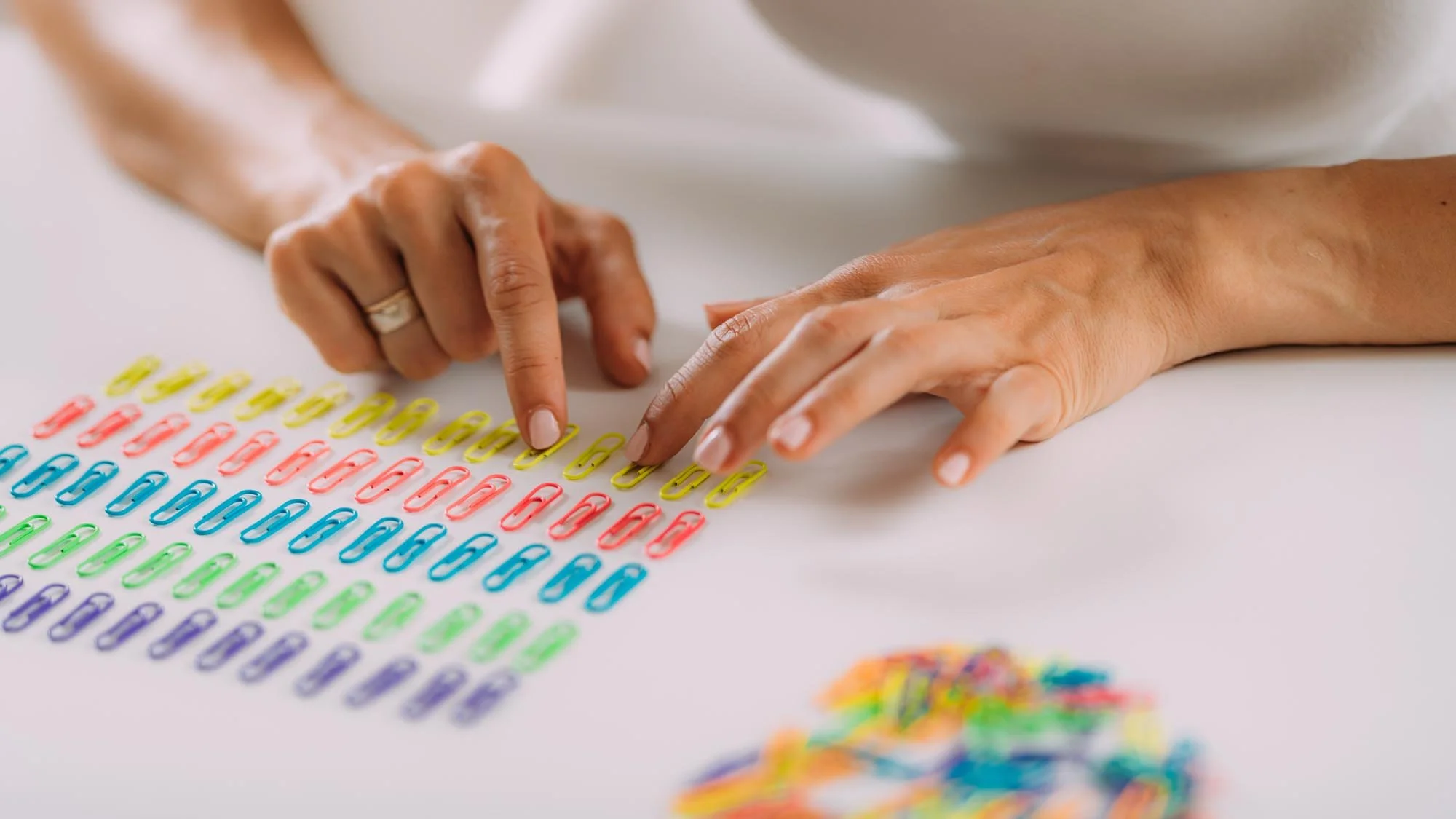
OCD Treatment
Break free from obsessive thoughts and compulsive patterns with tools that work
Understand what’s really happening
Living with OCD means feeling trapped in a loop with obsessive thoughts that won’t quiet down and rituals that seem impossible to resist. These patterns aren’t quirks or habits. They’re symptoms of a treatable condition.
At Tangible Therapy, we help you understand what OCD is, how it works, and what you can do to take control.
OCD may make you feel isolated or ashamed of your thoughts, even when you know they don’t make sense. But you’re not broken, and you’re not alone. We offer a judgment-free space where you can talk openly about your fears, behaviors, and daily struggles.
No topic is too small, too strange, or too hard to bring into the room.
A safe space to talk without shame
We use evidence-based therapies like Exposure and Response Prevention (ERP), which is considered the gold standard for treating OCD. This method helps you gradually face your fears without giving in to compulsions. It also gives you back a sense of control.
You'll learn how to respond differently to obsessive thoughts and reduce the anxiety they create, one step at a time.
Proven tools to break the cycle
Support built for your life
OCD shows up in all kinds of ways — rituals, intrusive thoughts, constant checking, relationships, or mental compulsions. No matter how it looks to you, we tailor treatment to your experience. Together, we’ll create a plan that helps you move forward with confidence and clarity.
Let’s work together to make that happen
Book your first session today, and take a real step toward relief.
What you’ll get
✺ Frequently asked questions ✺
-
Obsessive-Compulsive Disorder (OCD) is more than liking things neat or organized. It involves intrusive, unwanted thoughts (obsessions) and repetitive behaviors or mental rituals (compulsions) done to relieve anxiety. OCD can take many forms, and it’s treatable with the right approach.
-
If you feel trapped in thought loops or find yourself repeating actions to feel right, you might be experiencing symptoms of OCD. A trained therapist can help you understand what’s going on and give you a clear diagnosis if needed.
-
No. ERP is structured and collaborative. We go at your pace, with your input. You’ll never be pushed into anything before you’re ready. The goal is to build confidence step by step, not overwhelm you.
-
Yes. OCD requires a more targeted, skills-based approach. While emotional support is part of the process, we focus heavily on specific techniques to reduce compulsions and challenge obsessive thought patterns.
-
That’s completely normal. OCD often targets the things you care about most. We’ve heard it all, and we never judge. You’re not your thoughts — and you don’t have to carry them alone.





